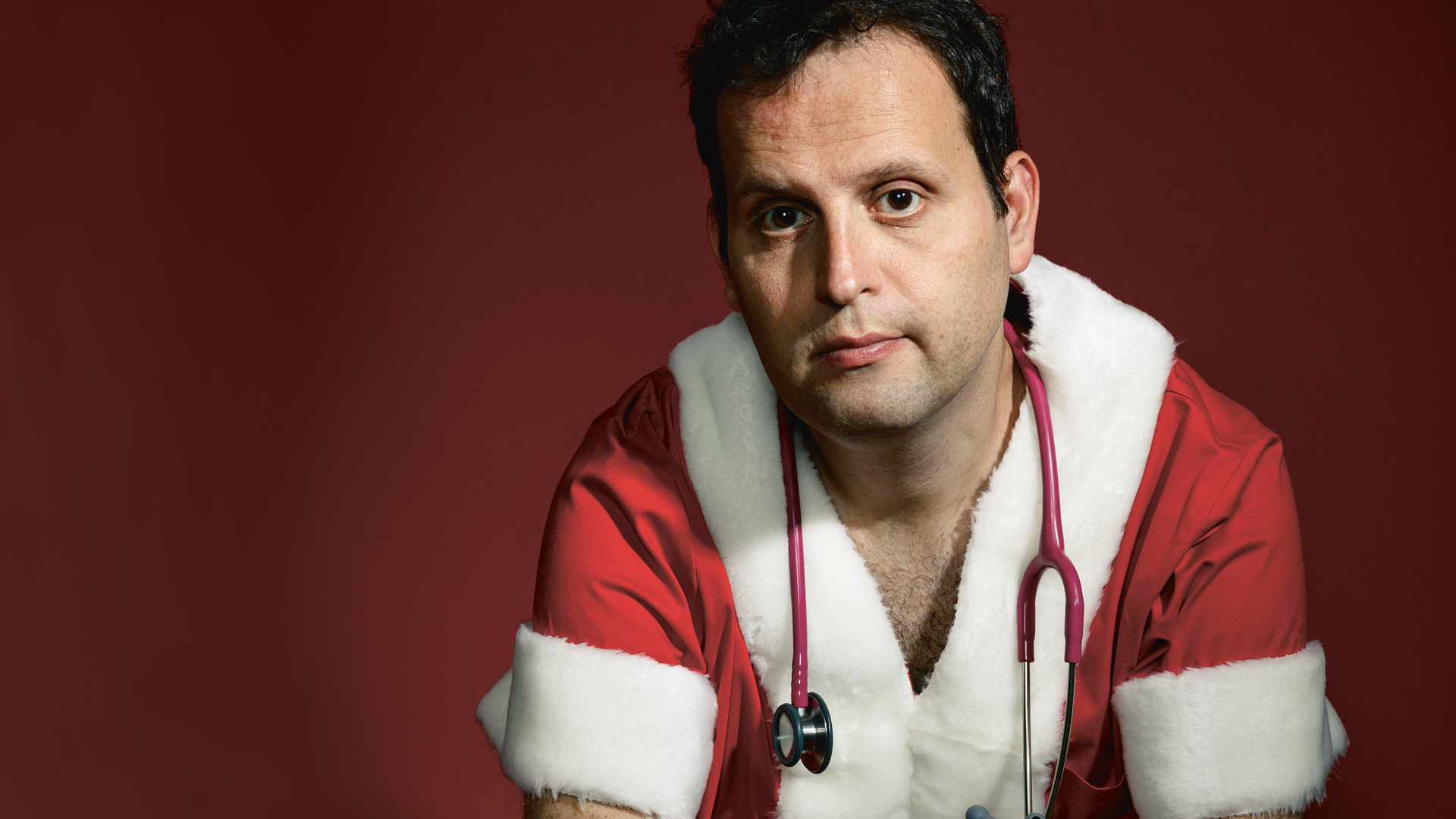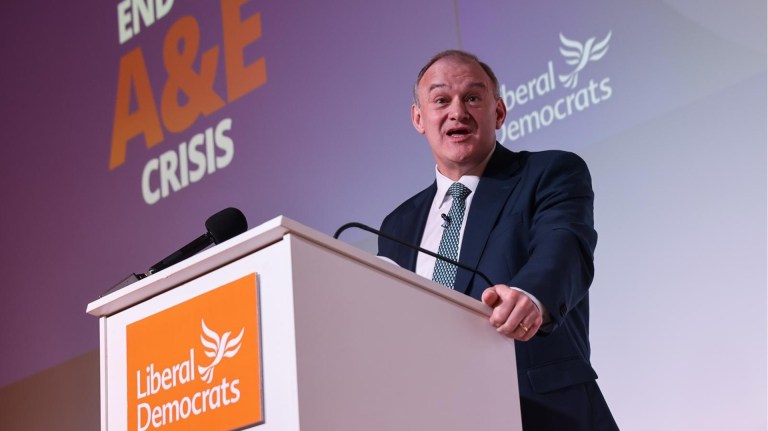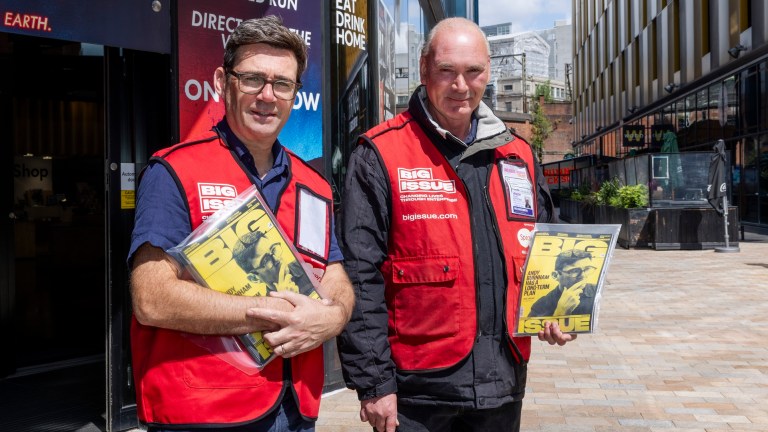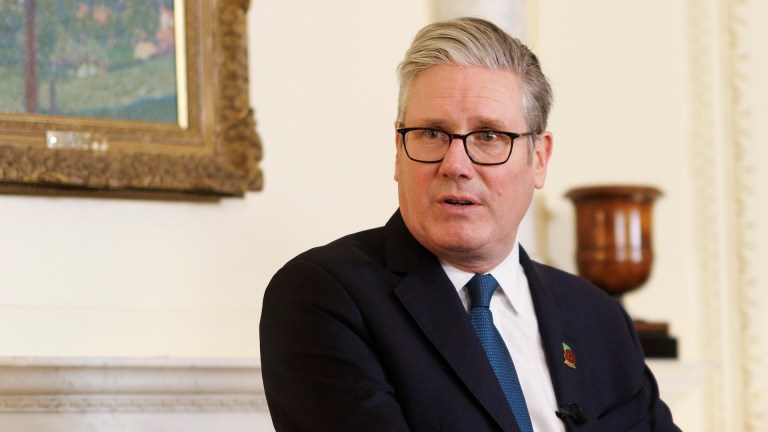Adam Kay trained as a junior doctor before the hours and stress became too much and he sidestepped into writing and comedy. Years later, he wrote up his diaries. This Is Going To Hurt, was in equal parts hilarious and harrowing, offering insight into life on the stretched, strained and very messy frontline. It sold more copies than any other non-fiction book in 2018, and its follow-up, Twas The Nightshift Before Christmas, has been top of the bestsellers chart since it was released last month. In this week’s Big Issue, the unlikely unofficial spokesperson of the NHS explains why healthcare is always a big issue, not just at Christmas or when there are elections coming up…
Why every day is like Christmas for the NHS
In hospitals, you go down to the bare minimum of staff for Christmas so as many people as possible can spend time with their families. But the bare minimum seems to be where we are every day at the moment. The NHS is short over 100,000 members of staff. That’s an unthinkable number. Over 10,000 doctors alone, over 30,000 nurses. It is Christmas every day and not in the good sense. Depressingly, things have got significantly worse since I left the NHS in 2010. I don’t think my book paints a particularly relaxing picture of a job but in retrospect, those were the good old days.
The eight years of underfunding after 2010
I thought I’d left medicine behind, then the government decided they wanted to take an axe to junior doctors. It was very difficult hearing the lie that doctors are striking because they wanted money and they were being greedy knowing what the truth actually was. I didn’t feel like I had any choice but to get my side of the story across. Immediately after I left there was significantly less funding. In boring terms, health inflation is the amount of money more than the year before it costs to provide exactly the same level of service. Over the decades, the NHS generally commits to three per cent every year – that’s enough to tread water. But there was a period of eight years where it only got one per cent more a year in real terms.
Can we avoid adding extra burden to the NHS at Christmas?
I’m always slightly nervous about being asked how can people take the burden off the NHS and not come in with minor fixes because I think most doctors will say that it’s much better that they see a dozen things that people could have dealt with at home than one person stays at home when they should have come in. You can phone NHS Direct, visit pharmacists, but ultimately, if you need the NHS, they are always there.
Granny dumping is a thing – don’t do it
Families who want to want a break from their aged relatives will manufacture some spurious set of symptoms curiously close to Christmas Day and that’s them in hospital for a few days. It’s utterly heart breaking. The first time you see it, you think that must be callous and unusual. Then you realise it is just a feature of the festive season. It also speaks to the fact that we have grossly underfunded social services, and not to excuse it, you can understand how families reach breaking point and need a bit of time off when they’re filling a gap that in an ideal world social services would be helping with.
Hunt Saboteur: Jeremy Hunt’s terrible legacy
I found the Conservative leadership campaign very depressing to watch. Jeremy Hunt was claiming that he was a great negotiator and one of his great successes was steering the NHS through the doctors’ strike. I felt like we were being gaslit. He was a disaster for the NHS, and he caused harm. I do believe that he has blood on his hands. Everyone was prepared to totally forget his years and years and years of systematically under funding the NHS, waging war against junior doctors, and leaving it in the worst position that it’s been in since it was founded 71 years ago. Not that I’m happy with the current Prime Minister though.









